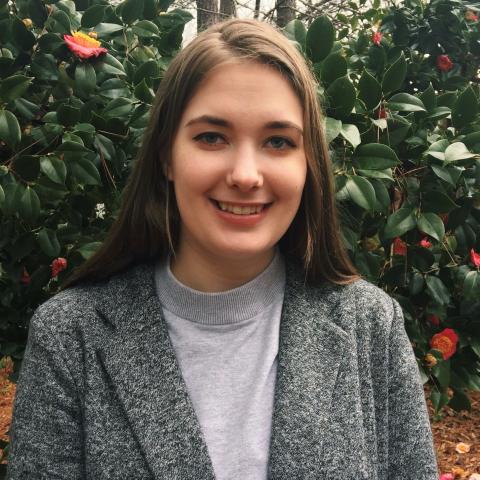
Polis Recap:
PSC Press Briefing on the 2022 Midterm Elections
Meg Bittle
Nov 12, 2022
Directly following a Duke faculty Midterm Election briefing, 6 Polis Student Committee (PSC) members were interviewed by international journalists through the organization of the State Department.
PSC panelists included Chloe Decker (PPS ‘25) of the NC Young People’s Alliance; James Gao (PPS ’24) of Duke Dem’s; Pilar Kelly (PPS ’24) of Duke Votes; Ishanvi Malayanil (PPS ‘26) a women’s rights activist who has spoken at UN Women; Jaquell Sneed-Adams (MPP ‘23), Research Assistant for Polis / PolicyLab Fellows Duke Political History Project; and Jordan Wilson (MPP ‘24) of Policy in Living Color.
Young people represent the largest voting bloc in America but are historically absent as voters. The student panelists highlighted both optimistic and pessimistic outlooks on the youth vote.
Kelly highlights gerrymandering as a discouraging factor in mobilizing young voters. However, she asserts that “there is opportunity for optimism” as seen with the first Gen Z elected into office. Malayanil argues that these moments of progress will continue to motivate and mobilize young voters.
Decker, Gao, and Kelly worked hard this semester to encourage fellow Duke students to vote through their various organizations. Decker stresses the importance of college students to vote where their voice will make a difference, even if in a state they will only call home for the next 4 years.
However, Sneed-Adams argues that young people not connected to colleges and universities are a missing element in mobilization. College students have access to resources and information that their rural and working-class counterparts may not have. Wilson echoes this sentiment and says there is not enough outreach being directed towards that demographic.
Gao was also struck by how many of his fellow students found voting to be “an obligation rather than a privilege.” He worries that young people often feel too disconnected with the political process and disillusioned with the “legislative gridlock and inaction of Congress.” Wilson agrees, saying that “young voters are frustrated. They’re pissed off…they don’t have the same economic opportunities as their parents did.”
The students were then asked how they bridge divides and extreme polarization. Sneed-Adams asserts that she feels lucky that she did not grow up in a political bubble or echo chamber. She was exposed to many different viewpoints and values, which allowed her to grow, learn, and even be critical of issues within her own party. Decker believes social media often contributes to a rigid binary, “the ultimate battle” between viewpoints. Kelly agrees, saying that watching the election results felt like watching two teams, with losers and winners. She says, “there is no way that these “two teams” can really encapsulate the values of every single American.” Several of the students stated that they are willing to have conversations with those of differing viewpoints. However, that conversation ends when laws concerning civil rights and bodily autonomy are at stake, certain demographics become dehumanized, and/or violence is threatened.
Lastly, students were asked about which policy issues meant the most to them. Kelly highlighted immigration and abortion access. Malayanil agreed, arguing that the reversal of Roe v. Wade “becomes a gateway to other rights getting revoked.” The students also mentioned voting rights, gerrymandering, and the fear of extremism and election denialism.


